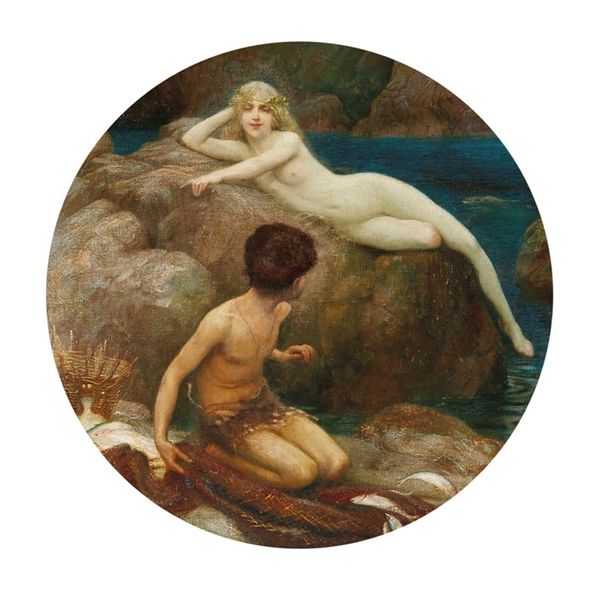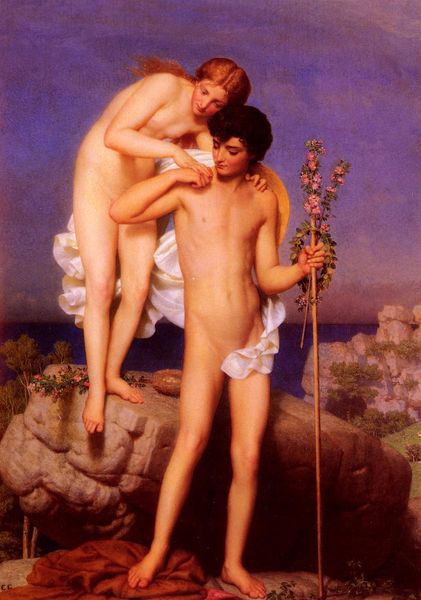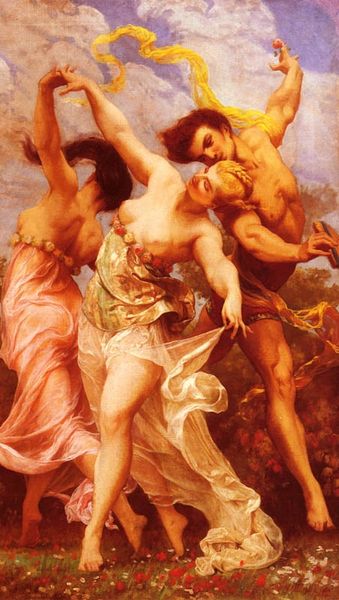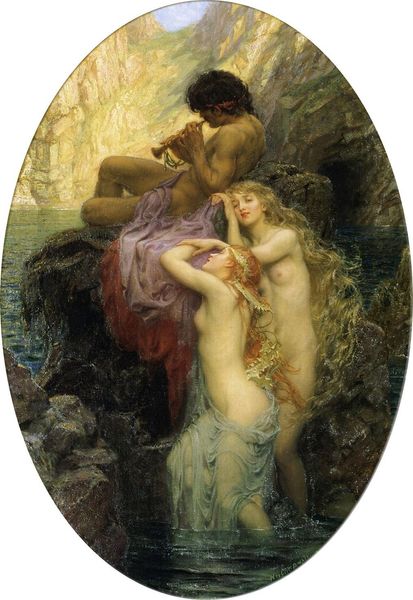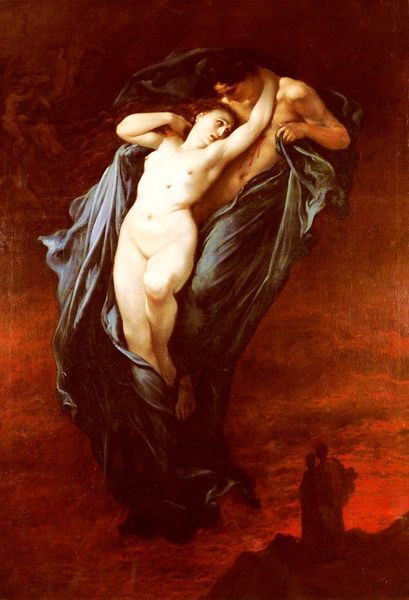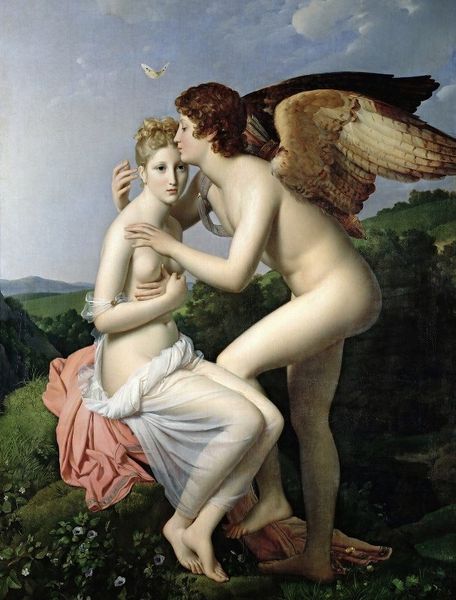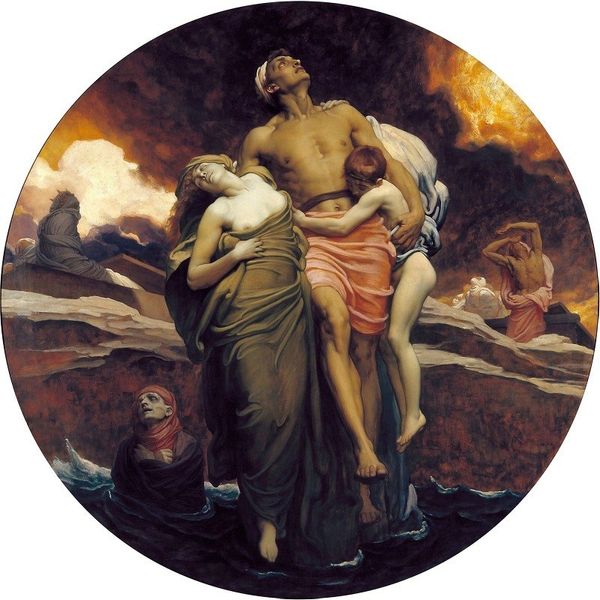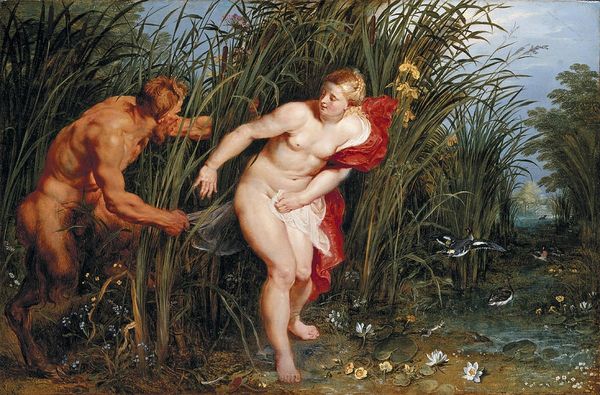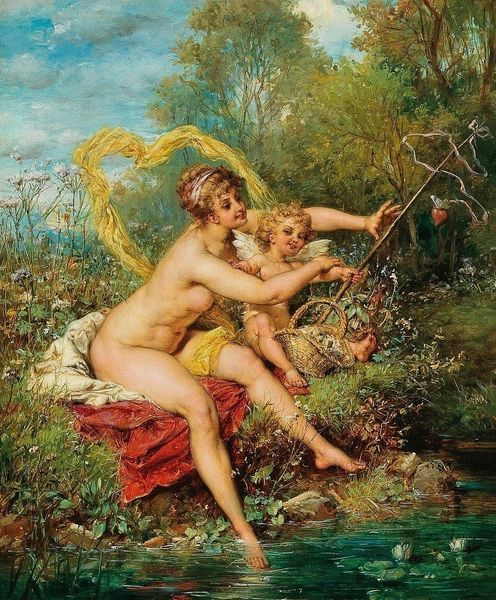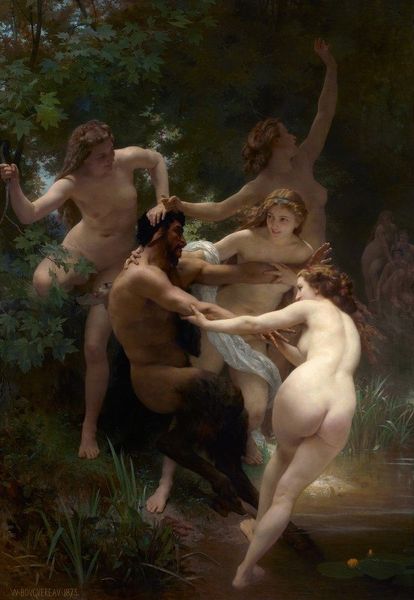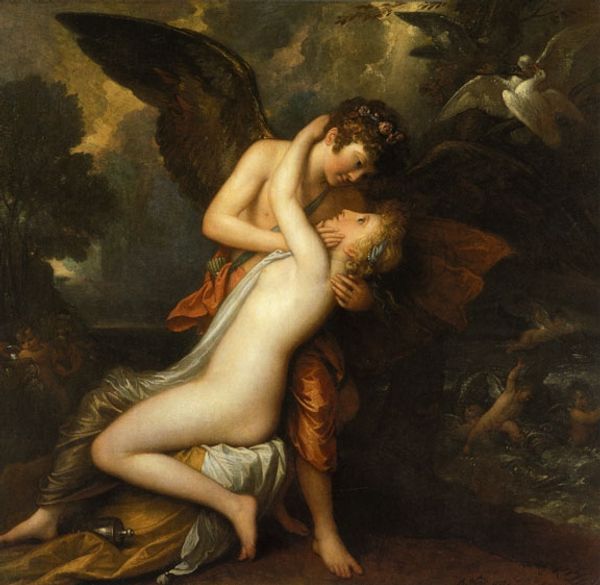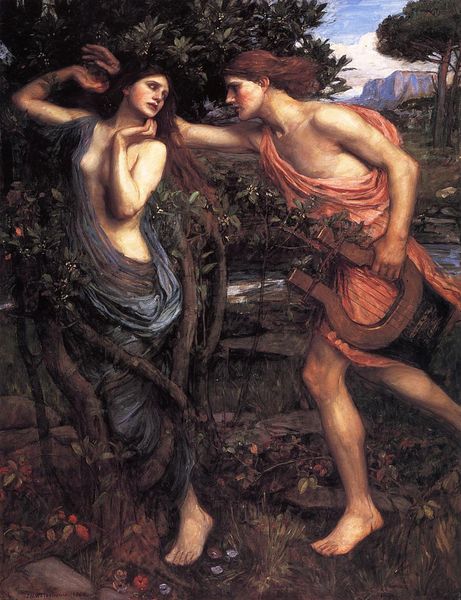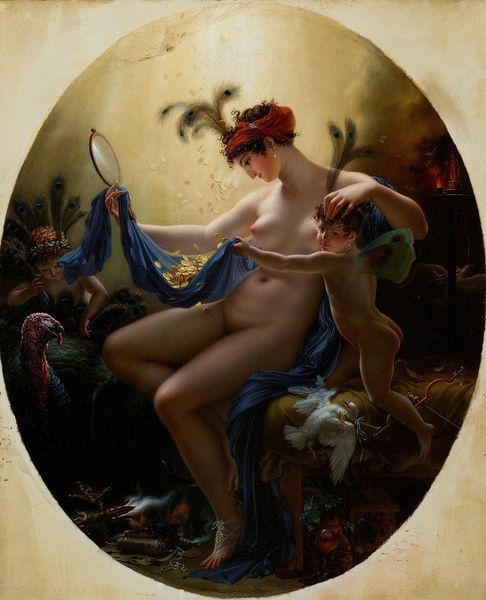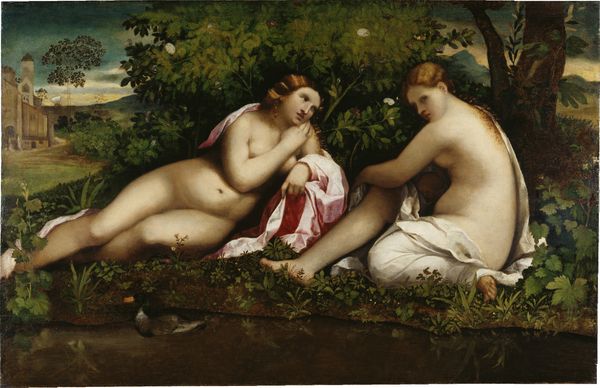
Copyright: Public Domain: Artvee
William Bouguereau painted Flora and Zephyr with oil on canvas. Here we see a re-imagining of classical themes in nineteenth-century France, a time when the Academy dictated artistic taste, favouring idealized forms and morally uplifting subjects. Bouguereau's work, though technically brilliant, was criticized for being overly sentimental and out of touch with modern life. Consider the politics of beauty in this image. The perfect bodies, the soft light, and the idyllic setting all contribute to a sense of idealized femininity and masculine desire. We might look at the role that institutions like the French Academy played in shaping these notions of beauty and how they served the interests of the bourgeoisie at the time. To understand the cultural significance of Bouguereau's work, we can examine Salon reviews, art criticism, and social histories of nineteenth-century France, understanding that even seemingly innocent images can reflect the complex social and institutional forces of their time.
Comments
No comments
Be the first to comment and join the conversation on the ultimate creative platform.
